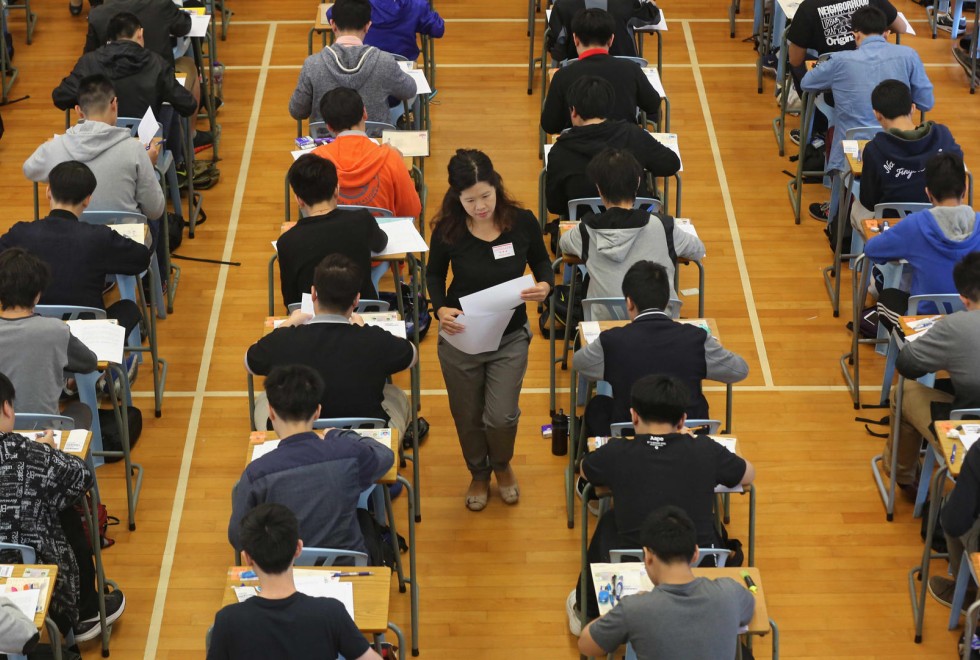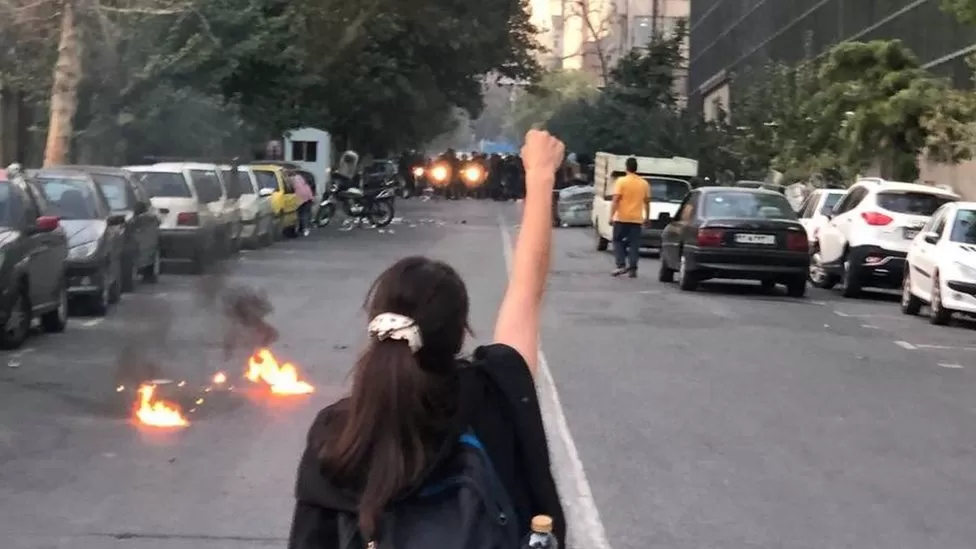
When I was in my senior year of high school, I only had 6 months left of school and then I would be in my study break. Those 6 months were spent with one goal: studying to prepare for the public examinations. This would determine whether one would get into a bachelor’s degree in university (much like SATs or the A-levels). Yes, instead of enjoying my last year of high school, I spent it on countless mock exams, class exercises and both after-school tutorials and tutorials during the weekends, as if 8 hours of school everyday isn’t enough to whack my brain out. On top of that, I had to do homework, projects and work-part time (for my own allowance and expenses) so the bottom line is: I didn’t enjoy my last year of high school.
Instead, like my peers, we were being suited up and molded into academic war machines. The exam is a war zone, a battlefield and a fight of our lives while our own friends and peers are our enemies. We had to aim it at their heads for a bull’s eye. It was carved into our heads that we must get into a place for university or else we’d be “failures” and become a disgrace for the school. As there are only about 20,000 bachelor degree places available and about 80,000 students take the exam every year; we must level up in order to face our local Hong Kong Chinese counterparts (ethnic minorities and educational segregation is another problem) whom the teachers always compare to us because they study “8 hours a day” and we can’t even get through an hour of after-school tutorials. They said that if we don’t want to wind up being waiters or construction workers (which by the way is related to the high concentration of ethnic minorities like myself that have landed in these jobs), we should step up and study till the end.
Note: There are other options like vocational training, associate degree/higher diploma which is pre-bachelors but not only do they cost more but they’re seen as the dump site of “failures.”
It’s a sick culture isn’t it? Being an academic-oriented (more worst, exam-oriented) society where a 100 is a must, where being good at one subject isn’t enough, where you have to do piano lessons on top of being in the basketball team and speak 5 languages, where science and business are preferred over arts; it is this culture that pushes us to the extreme. Everything is related to what your grades look on paper, that’s how you’re going to be determined if you are worthy for a place in this society. And for an ethnic minority that is struggling to even find our place, it’s much more difficult. It’s just saddening to see talented individuals being thrown away because they couldn’t get a pass at Math but scored at the top for English (yes, I am one of them).
It wouldn’t come as a surprise that Hong Kong raises children that would become lonely adults and it is this very system that is failing these children. They do not even have much choice in choosing what they want to pursue, just choosing whichever their parents want or whichever is the easiest to get into. There is just so much pressure to succeed. That’s why helicopter parents, tiger mums and dads exist. And that’s probably also why the stereotype of Asians being nerds and smart and genius take its roots. It’s not 100% right but it’s also not 100% wrong. We are cultivated to be these kind of people instead of allowing us to become who we want to be and live the way we want to be, a little bit free from textbooks. Hong Kong has the highest IQ in the world at 107 points. But in exchange for what? How about our EQ? The happiness of Hong Kong children is dropping according to a Lignan University survey.
It’s no surprise. I work as a part-time tutor and I see sad and restless faces of children cowering in the front of tutorial centers. The suicide rates in the city are also raising. Since the start of this academic year, 22 young people have taken their lives, one being just 11 years old. And the four recent cases occurring just over a course of 5 days. Dr. Lee Sing a professor of psychiatry from the Chinese University of Hong Kong points to the lack of ability to handle stress. And this brings me back to my point, we were cultivated by textbooks and handling stress is better learned through experience which textbooks would never teach us. To make matter worst, Hong Kong’s fast-paced life style means having busy parents who couldn’t really provide emotional support and choose to complain to the school and let them handle the matter which never really goes well.
But it’s not only in Hong Kong. South Korea and Japan (among others, mostly East Asian countries) have also been in the radar of academic pressure that pushes students to commit suicide. Tutorial/Cram schools (Juku in Japan, Hagwon in South Korea and Buxiban in Taiwan) are everywhere. Tutors become celebrities (in Hong Kong, they’re called “King of Tutors” and has become a form of idol worship). In 2013, South Korea has been dubbed “The Suicide Capital of the World”. From 2001 to 2011, their suicide rate increased by 57%. Japan, on the other hand, has a history of more than 18,000 child suicides from 1972-2013 and is around 60% higher than the global average. Among young people, there are about 4,600 suicide deaths each other. According to CNN reporter, Yojana Sharma, “There is evidence of high levels of education spending in China, South Korea, Taiwan, Hong Kong and Singapore. Spending is also increasing in India and Indonesia.” This basically means more money is going to education but not to help the students to cope with their problems instead.

During my first year of college, my school had 5 cases of suicide and not being prepared for university life is also a factor. High school doesn’t prepare us for university anyway, it prepares us for exams and exams alone. A recent report by the Paediatric Society shows 62% of students experienced sadness and crying for no reason. 63% reported having sleeping disorders and alarmingly while 66% choose to seek help online rather than adults. And that’s really saying a lot. The adults are failing us. Because to them, we should be their perfect academic machines.
The situation is alarming. But it seems like the government isn’t. Their solution is to have students sign a “No Suicide Contract” (a student contract which requires students to list down who they would contact if they feel down and what they’ll do to avoid hurting themselves) which is really just a band-aid solution so the government wouldn’t be blamed since they can say “Well, he/she signed a contract!” But situations changed, one might feel alright at one point but that doesn’t be one be forever be alright. Instead of looking at the reasons and factors why, the government choose to turn a blind eye to the core of the problem. As an exam-oriented society, changing the exam system isn’t an option or at least one they would prefer not to do.
So in the end, we still have to endure an academic-oriented society. We are all asking for you to give us back our childhood, all those hours spent staring at numbers, staring at the blackboard and listening to the voices of teachers are the only life we know. We don’t even know a life outside of a classroom. At least not until we ever get into a place at university. Life is so much more than just knowing how to do something from a textbook, school doesn’t even teach us how to be brave and how to be who we are which are essentially more important in life. Textbooks can’t build a character and it certainly can’t build a person.
(If you’re curious where I am now after I failed my Math which was the reason of not getting into a bachelor’s degree, I took up two years of associate degree and I recently just graduated from that. I got into direct 3rd year entry of bachelor’s degree that I’ve been dreaming of which means I skipped freshman and sophomore year. I think that goes to show that just because you didn’t take the traditional path, it doesn’t mean you’ll never get there. There isn’t only one way to succeed. I am thankful for my two years of associate degree because it gave me time to think about my life, what I really want to do and to experience things I would never had outside of a classroom or textbook. I don’t regret my failure right after high school. Sure, I disappointed a lot of people but in the end, it’s also about rising above it. So take that you education system. You are who you are. And your grades aren’t going to define who you are.)




Comments are closed.